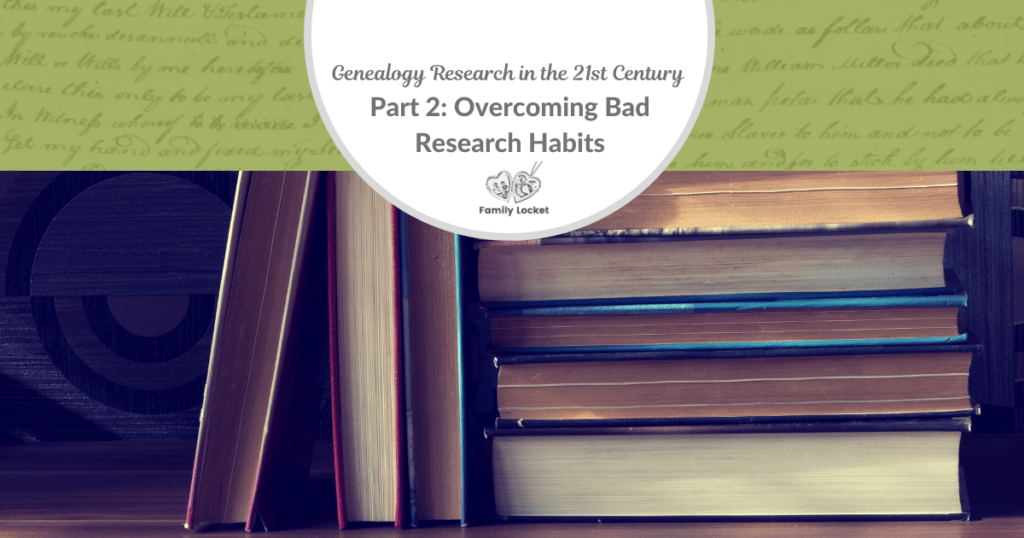Technology has made genealogy research more accessible, but how has it impacted our research habits? Depending on when you began your genealogy journey, you may have received your initial research training from family history websites and tree-building services. Searching in online databases and seeking information in record hints have created habits that many researchers now are trying to break.
Thomas W. Jones, PhD, CG, CGL, FASG, FUGA, FNGS gave the lecture, “The Advance of Research Habits over Recent Decades—And the Downside” at the Salt Lake Institute of Genealogy (SLIG) in January. The lecture was part of the “Meeting Standards with DNA – Research Strategies” course coordinated by Karen Stanbary. This is part two in my four part series include about the lecture.
Part 1: Genealogy Research is Still Hard
Part 2: Overcoming Bad Research Habits
Part 3: Collaboration and Personal Communication
Part 4: Learning to Use DNA and Standards
Random Search-and-Click Hunting
The computer has been an incredible boon for researchers sine the pre-1980s era of genealogy research. However, the ease with which researchers can go to a major genealogy website, click, type in a name, scroll, scroll, then click to find a relevant record has created a slot-machine effect. Sometimes you get lucky and find something after a few clicks, and that’s exciting. Other times you find nothing.
Like a slot machine, if you keep clicking and typing names into databases, you may eventually be rewarded. Occasional successes create the habit of random search-and-click hunting. This is known as an intermittent schedule of reinforcement and it often results in a habit that’s difficult to break. We keep hoping that we will find a helpful record this way, if we just keep clicking. The problem with random search-and-click hunting is that you waste time and effort and probably miss records that are hiding in browse-only collections or offline manuscript collections.
If you continue the search-and-click hunting method forever and don’t take any time to create a research plan, you may never find the clues that tie your family together, ultimately building your own brick wall. Perhaps there are no more records to find, and your next step is to write about all the clues you’ve gathered in a research report. Without doing this, you may miss important connections and the opportunity to build a case based on indirect evidence.
Suggestions
Overcoming bad research habits is up to each of us. To apply lessons learned by genealogists in the pre-1980 era to our modern era of research, we can:
– Use online and offline finding aids to seek more relevant sources and create a research plan.
– Take advantage of more educational opportunities, online and offline, to expand our knowledge of available records.
– Read peer-reviewed journals, like the NGSQ, for examples of problem-solving methodology and typical sources genealogists use for a particular time and place.
– Look at the original record – don’t rely on the transcription.
– Learn about sources. Look at the front matter of books. Look at the other pages, not just the one with your research subject. Understand the record in its context.
– Slow down and think about what the record might mean. Give each document adequate analysis.













2 Comments
Leave your reply.